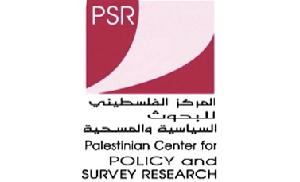Findings of the fourth quarter of 2010 indicate an increase in the level of pessimism regarding the chances for reconciliation and restoration of unity between the West Bank and the Gaza Strip. They also indicate an overwhelming rejection of alternative forms of relations between the West Bank and the Gaza Strip such as a confederation or separate elections in each region.
Findings also show widespread distrust in the authorities in both the West Bank and the Gaza Strip regarding Fateh-Hamas relationship. Findings also point out to a significant and continued deterioration in public perception of the level of freedoms enjoyed by citizens in the West Bank and the Gaza Strip since the split between these two areas in June 2007. For example, belief that citizens can criticize the authorities in the West Bank without fear retreated from 56% in September 2007 to 27% in this poll. Similarly a retreat occurred in the belief that citizens can criticize the authorities in the Gaza Strip without fear from 52% to 19% during the same period.
It is worth noting that 70% of the public in the West Bank and the Gaza Strip believe that the government of Salam Fayyad should conduct local elections now that the Palestinian Supreme Court of Justice has annulled a previous decision by the government to cancel local elections that were scheduled to take place last July.
Finally, findings show that the balance of power between Fateh and Hamas has remained almost unchanged compared to the situation during the third quarter of the year. The same is true regarding the popularity of president Mahmud Abbas and Ismail Haniyeh. Moreover, findings regarding the balance of power in the fourth quarter of this year are very similar to those of the final quarter of 2009 which means that the internal and external developments throughout 2010 has left no impact on this critical issue of internal balance between Fateh and Hamas and Abbas and Haniyeh.
Findings show that two thirds of the public oppose return to US-sponsored indirect negotiations with Israel. But they also show that almost 60% believe that Israel would be the one to benefit from such a step while only 13% believe that Palestinians would benefit from not returning to negotiations. Findings also show that the public is still uncertain about the best alternative to negotiations: two groups support almost equally two options, going to the US Security Council and waging violent confrontations. A third group prefers a non violent resistance and a fourth prefers to dissolve the PA.
These are the results of the latest poll conducted by the Palestinian Center for Policy and Survey Research (PSR) in the West Bank and the Gaza Strip between 16-18 December 2010. Total size of the sample is 1270 adults interviewed face to face in 127 randomly selected locations. Margin of error is 3%. For further details, contact PSR director, Dr. Khalil Shikaki, or Walid Ladadweh at tel 02-296 4933 or email pcpsr@pcpsr.org. This poll was produced with support from the Konrad Adenauer Stiftung Ramallah.



